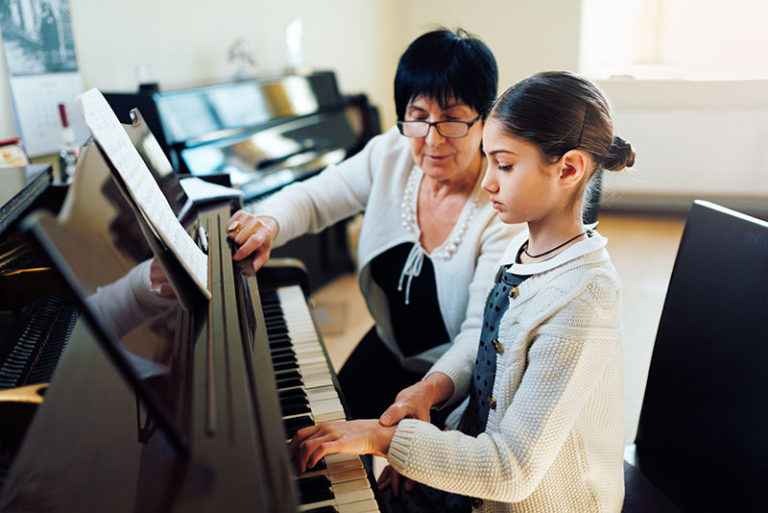Piano Lessons as a Family Activity: Making Music Together
Music has always been a universal language, capable of connecting people across cultures and generations. For families, it can serve as a meaningful activity that strengthens bonds while fostering creativity and discipline. Piano lessons in particular offer an opportunity for parents and children to come together, learn side by side, and share in the joy of creating music. Unlike solitary hobbies, playing piano as a family becomes a shared journey where everyone can contribute, listen, and grow. This collective experience not only enriches musical ability but also strengthens family ties in ways that extend far beyond the practice room.
Growing together through music
When families decide to pursue piano lessons together, they embark on a journey of growth that combines fun with commitment. Parents set an example of dedication by practicing regularly, while children mirror these efforts, creating a supportive environment where progress is celebrated and encouraged. Shared lessons encourage patience and teamwork because each family member must listen and adjust to one another during duets or group performances. This collaborative approach transforms piano practice into more than just a technical exercise; it becomes a bonding moment that cultivates empathy and fosters effective communication. Families sometimes complement piano with other musical activities, such as singing lessons in Sunnyvale, which can enhance rhythm, pitch, and performance skills for both children and adults. The combined learning experiences deepen music appreciation and create lasting memories.
Building family traditions with the piano
Family activities often become the foundation for long-lasting traditions, and piano lessons provide an ideal platform for establishing these traditions. Seasonal gatherings can be enriched with music when families play together, turning holidays and celebrations into occasions filled with harmony. Children look forward to these opportunities, and parents find satisfaction in watching their progress showcased before friends and relatives. The sense of anticipation and preparation for these family recitals encourages consistency in practice. Over time, these moments evolve into cherished traditions, where the sound of the piano is forever linked to warmth and togetherness. Even outside of formal events, simple evenings spent around the instrument create an atmosphere of joy and connection that strengthens bonds across generations.
Encouraging creativity and self-expression
Piano lessons as a family extend beyond learning scales and songs; they become an outlet for creativity and emotional expression. Each family member develops a personal style, whether improvising melodies, composing small pieces, or experimenting with dynamics and tempo. When shared within the group, these creative efforts inspire others and spark discussions about interpretation and musicality. This environment encourages children to see music not just as a skill, but as a means of communication and storytelling. Parents, too, rediscover their own creativity, often finding new ways to connect with their children through the shared language of sound. The piano becomes more than an instrument; it evolves into a tool for expressing feelings and building understanding within the family unit.
Enhancing discipline and routine
One of the most valuable lessons piano practice teaches families is the importance of discipline and structure. Setting aside consistent time for lessons and practice helps children learn the value of persistence, while parents model commitment by participating alongside them. Families create routines where everyone is held accountable, turning practice sessions into scheduled events rather than isolated chores. This discipline extends to other areas of life, reinforcing the importance of time management, focus, and responsibility. The collective accountability ensures that no one feels alone in the process, as everyone contributes to maintaining progress. Over months and years, the regular practice of piano instills habits that benefit not only musical development but also academic, professional, and personal growth.
Creating lasting memories and values
The most enduring benefit of piano lessons as a family activity lies in the memories created and values instilled. Every recital, every breakthrough in mastering a piece, and every laugh shared during a practice session becomes part of the family story. These moments remind everyone of the power of working together toward a shared goal and the joy of celebrating achievements as a unit. Families who learn piano together often pass down not just musical skills but also a love of learning, perseverance, and creativity. Long after the lessons have ended, the memory of those shared practices lingers, forming a legacy that can be passed on to future generations. The piano thus becomes more than furniture or a hobby; it becomes a symbol of unity, dedication, and the enduring strength of family connections.
Piano lessons as a family activity offer a unique combination of education, creativity, and togetherness. By learning and practicing together, parents and children reinforce discipline, establish traditions, and cultivate a shared appreciation for music. The experience nurtures both technical skill and emotional expression, while also instilling patience, cooperation, and responsibility. Through performances, routines, and everyday practice, families create memories that endure long after individual notes fade. In the end, the piano becomes more than an instrument; it becomes a unifying thread that binds family members closer together, leaving behind a legacy of music, love, and connection.






